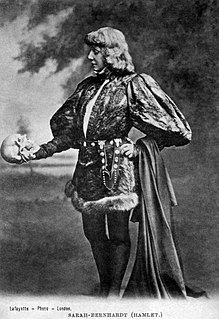
Acting is an activity in which a story is told by means of its enactment by an actor or actress who adopts a character—in theatre, television, film, radio, or any other medium that makes use of the mimetic mode.

Method acting is a range of training and rehearsal techniques that seek to encourage sincere and emotionally expressive performances, as formulated by a number of different theatre practitioners. These techniques are built on Stanislavski's system, developed by the Russian actor and director Konstantin Stanislavski and captured in his books An Actor Prepares, Building a Character, and Creating a Role.
Total physical response (TPR) is a language teaching method developed by James Asher, a professor emeritus of psychology at San José State University. It is based on the coordination of language and physical movement. In TPR, instructors give commands to students in the target language with body movements, and students respond with whole-body actions.
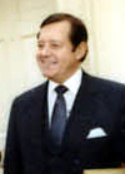
William R. Bright was an American evangelist. In 1951 at the University of California, Los Angeles he founded Campus Crusade for Christ as a ministry for university students. In 1952 he wrote The Four Spiritual Laws. In 1979 he produced the film Jesus.
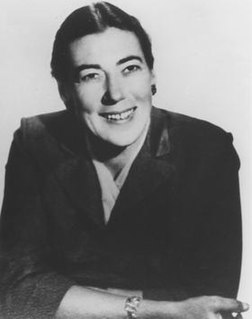
Evelyn Hooker was an American psychologist most notable for her 1957 paper "The Adjustment of the Male Overt Homosexual" in which she administered several psychological tests to groups of self-identified male homosexuals and heterosexuals and asked experts to identify the homosexuals and rate their mental health. The experiment, which other researchers subsequently repeated, argues that homosexuality is not a mental disorder, as there was no detectable difference between homosexual and heterosexual men in terms of mental adjustment.
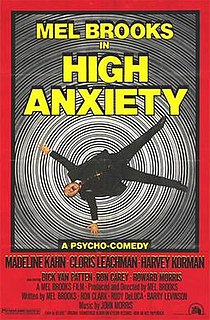
High Anxiety is a 1977 American satirical comedy film produced and directed by Mel Brooks, who also plays the lead. This is Brooks' first film as a producer and first speaking lead role. Veteran Brooks ensemble members Harvey Korman, Cloris Leachman, and Madeline Kahn are also featured.

Stanislavski's system is a systematic approach to training actors that the Russian theatre practitioner Konstantin Stanislavski developed in the first half of the twentieth century. His system cultivates what he calls the "art of experiencing". It mobilises the actor's conscious thought and will in order to activate other, less-controllable psychological processes—such as emotional experience and subconscious behaviour—sympathetically and indirectly. In rehearsal, the actor searches for inner motives to justify action and the definition of what the character seeks to achieve at any given moment.

Lee Strasberg was a Polish-born American actor, director, and theatre practitioner. He co-founded, with directors Harold Clurman and Cheryl Crawford, the Group Theatre in 1931, which was hailed as "America's first true theatrical collective". In 1951 he became director of the nonprofit Actors Studio in New York City, considered "the nation's most prestigious acting school," and in 1966 he was involved in the creation of Actors Studio West in Los Angeles.

Sanford "Sandy" Meisner was an American actor and acting teacher who developed an approach to acting instruction that is now known as the Meisner technique. While Meisner was exposed to method acting at the Group Theatre, his approach differed markedly in that he completely abandoned the use of affective memory, a distinct characteristic of method acting. Meisner maintained an emphasis on "the reality of doing", which was the foundation of his approach.
Donald Kalish was an American logician, educator, and anti-war activist.
Jerome "Pooh" Richardson Jr. is an American former basketball player who played 10 seasons in the National Basketball Association (NBA). He was selected in the first round of the 1989 NBA draft by the Minnesota Timberwolves, the first draft pick in franchise history. He would also play for the Indiana Pacers and Los Angeles Clippers during his 10-year NBA career from 1989 to 1999.
Mathematical anxiety, also known as math phobia, is anxiety about one's ability to do mathematics. It is a phenomenon that is often considered when examining students' problems in mathematics.
Winston Churchill Doby was one of UCLA’s vice chancellors. He was vice chancellor of student affairs for 20 years, making him the longest-serving vice chancellor in UCLA history, and then served as the vice president of student affairs for the UC system.
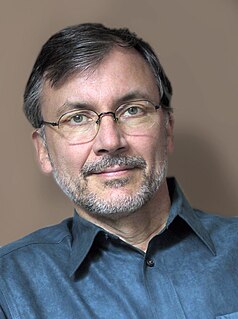
Eric Johnson "Rick" Heller is the Abbott and James Lawrence Professor of Chemistry and Professor of Physics at Harvard University. Heller is known for his work on time dependent quantum mechanics, and also for producing digital art based on the results of his numerical calculations.
Grace Maxwell Fernald was an educational psychologist and influential figure in early twentieth century literacy education. Fernald established "the first clinic for remedial instruction in 1921 at the University of California, Los Angeles". Tracing tactile learning tendencies back to Quintilian, Séguin, and Montessori, Fernald's kinesthetic spelling and reading method prompted struggling students to trace words. Years of research culminated in 1943 with her classic work, Remedial Techniques in Basic School Subjects. The popular kinesthetic method anchors modern instruction in the areas of special education and remedial reading. Kinesthetic learning is also included as one of Howard Gardner's multiple intelligences. Fernald's notion of incorporating the physical with the auditory, verbal, and visual elements of reading instruction, now known as "VAKT", multimodal learning, or multisensory imagery, continues to guide educators today.
Ilya Aleksandrovich Musin was a Russian conductor, a prominent teacher and a theorist of conducting.
Language pedagogy is the approach taken towards the methods used to teach and learn languages. There are many methods of teaching languages. Some have fallen into relative obscurity and others are widely used; still others have a small following, but offer useful insights.
Don Richardson was an American actor, director, acting teacher, as well as an author.
Born in Casablanca, Morocco, Jean-Louis Rodrigue is an acting coach, movement director, senior teacher of the Alexander Technique, and a pioneer in its application to film and theater. For over 40 years, he has worked professionally in Los Angeles and New York in theatre, film, television, and digital media. His unique approach to character movement and improving the levels of performance has also brought international recognition.
An acting coach or drama coach is a teacher who trains performers – typically film, television, theatre and, musical theatre actors–and gives them advice and mentoring to enable them to improve their acting and dramatic performances, prepare for auditions and prepare better for roles.








